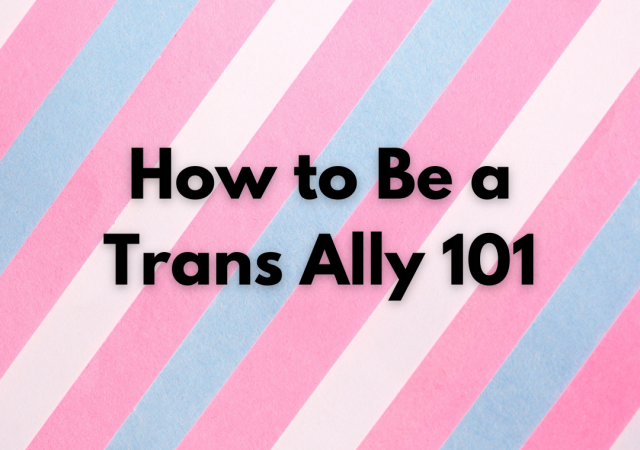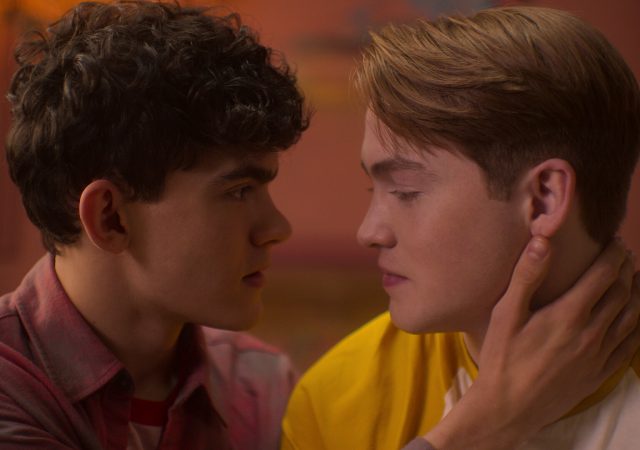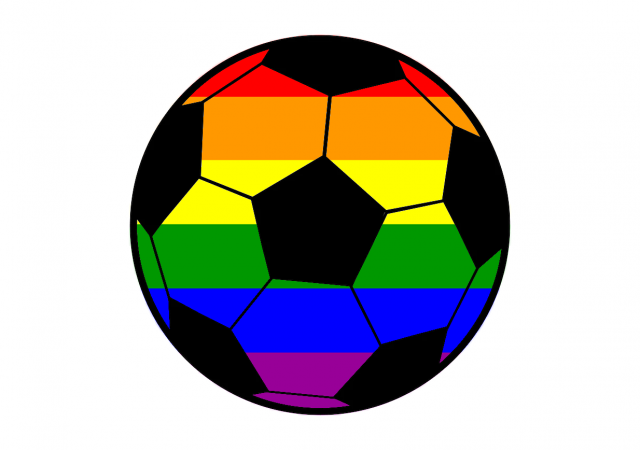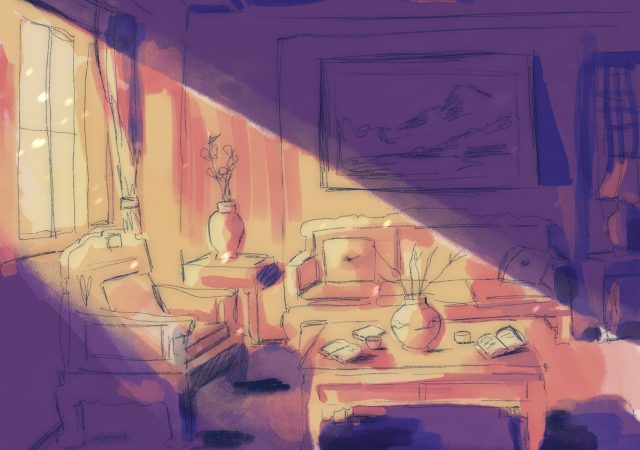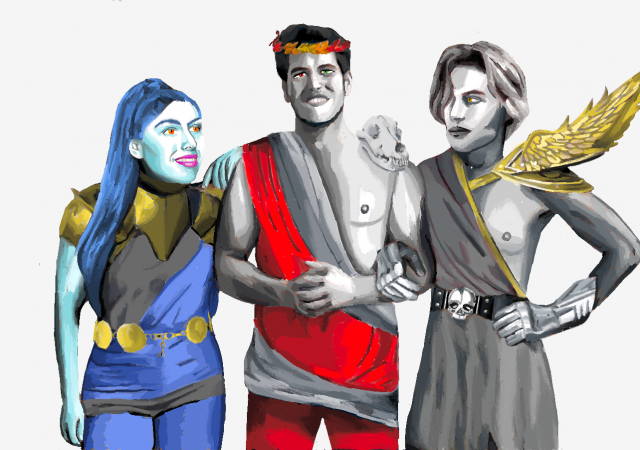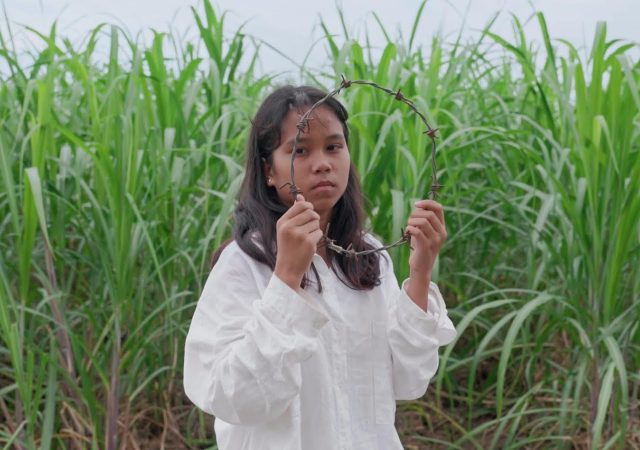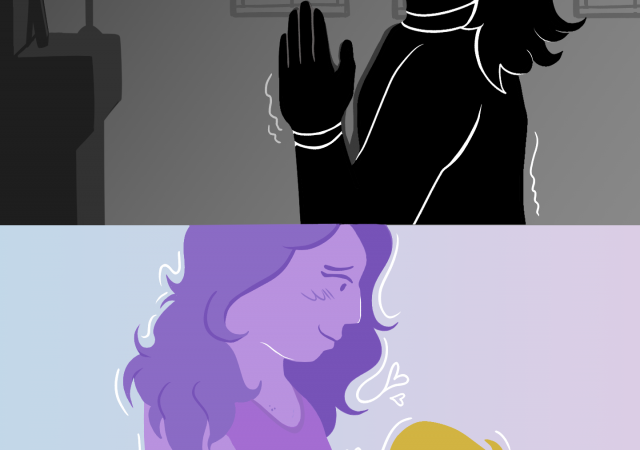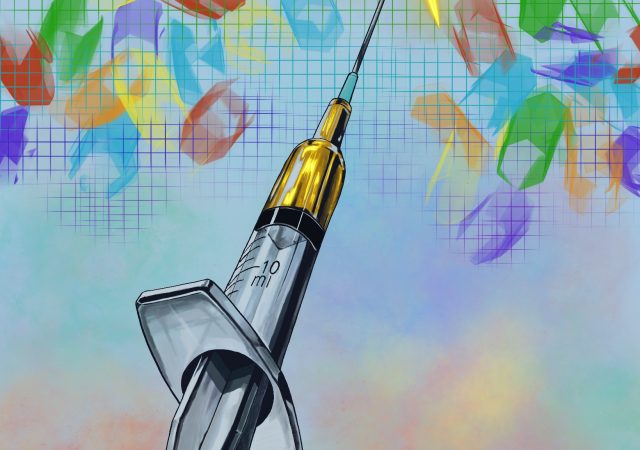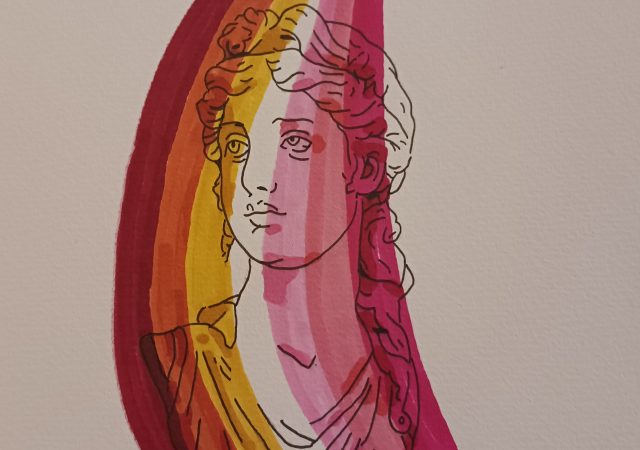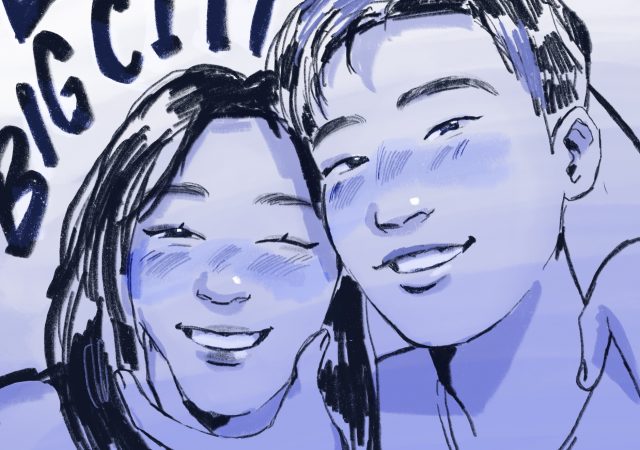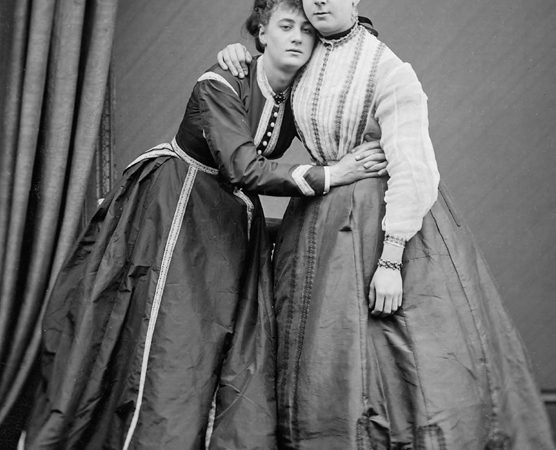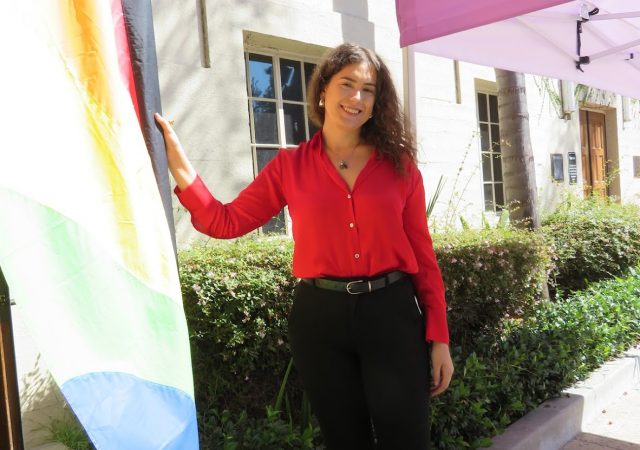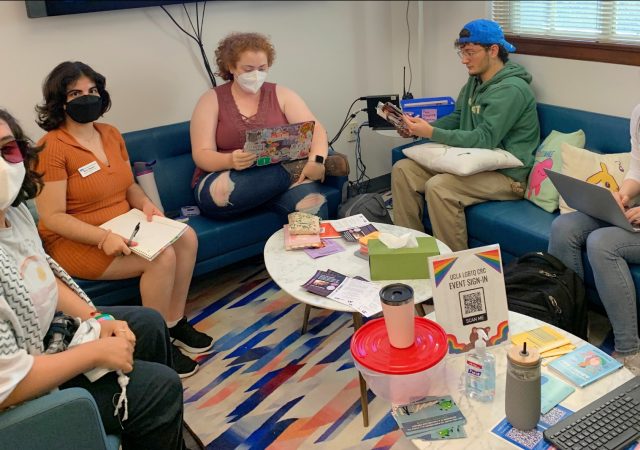Our OutWrite staff loves queer media! Here are some of our favorites from this summer:
The Umbrella
Lea was already late, running down the sidewalk like a marathon sprinter in the last leg of a race. She dodged around screaming babies in strollers, men in ironed suits in the midst of an argument, and bright yellow fire hydrants. She yelled a quick “Sorry!” or an “Excuse me!” as she weaved her way through the crowds of people hustling to enter the sanctity of their cars after work. Los Angeles at five in the afternoon was not a friendly place.
Gay Wrongs, and Why I Support Them — On “Bottoms” and Queer Irreverence
Lesbians have never looked as hot as when they are covered in the blood of football jocks like the characters of “Bottoms,” the instant classic lesbian rom-com movie of the year. “Bottoms” — directed by Emma Seligman — follows Josie (Ayo Edebiri) and PJ’s (Rachel Sennott) attempt to woo their respective love interests, Isabel (Havana Rose Liu) and Brittany (Kaia Gerber), with a faux all-women’s self-defense fight club. The film screams of a dark humor and irreverence rarely seen in LGBTQ+ media — a refreshing new take that presents audiences with queer, gray morality, or what I lovingly call ‘Gay Wrongs’.
The Supreme Court on Queer Rights: A Checkered Future
In June 2023, six out of nine Supreme Court justices ruled in 303 Creative LLC v. Elenis that a Colorado graphic designer could legally discriminate against same-sex couples by refusing to make websites for their weddings. The case expands the narrower precedent of Masterpiece Cakeshop v. Colorado Civil Rights Commission, a 2018 decision which ruled that the Colorado Civil Rights Commission could not compel a bakery to sell a wedding cake to a same-sex couple. Both rulings used the First Amendment’s provision for religious freedom as a bludgeon against the LGBTQ+ community’s right to access to public life.
How to Be a Trans Ally 101
Has someone in your life recently come out as transgender? Are you wondering how to support them but don’t know where to start? While there’s a plethora of resources about transness available online, the sheer volume of information can be overwhelming
Heartstopper Season 2: Grieving Something I Didn’t Know I Lost
When Season 1 of “Heartstopper” came out in April 2022, I was a senior in high school. I was coming out of yet another situationship with a straight guy. My story was classic: grow close to him, develop feelings, question whether or not he’s straight, confess.
Why Pride This Year?
Picture this: it’s June 28, 1970, nearly a year after the monumental Stonewall riots, and you’re attending the first Pride Parade in New York City. Except it’s not a parade, and it’s not entirely about Pride: it’s the Christopher Street Liberation Day March. Here, we recognize the familiar names of Marsha P. Johnson, Sylvia Rivera, Miss Major Griffin-Gracy, and the lesser known names of the march’s organizers Craig Rodwell, Fred Sargeant, Ellen Broidy, Linda Rhodes, Brenda Howard and many more. Unlike today’s Pride Parade, this march in New York was dedicated to Gay Liberation in the forms of political speeches, demonstrations, and gay visibility.
to live, not just to survive: the queer indomitable spirit
Queerness is often about survival. While Torres is alluding to a space free from discrimination and violence, with the ongoing COVID-19 pandemic, queer survival is being threatened even more. As much as we want to create a “safe space,” there is no true safe space as long as people are dying and becoming disabled from COVID-19. COVID-19 is being swept under the rug by our government despite clear evidence that repeat infections can leave lasting damage in almost every organ in the body.7 Currently, there is also a resurgence of anti-LGBTQIA+, anti-Black, anti-immigrant, and anti-free speech rhetoric and legislation. When queer people are denied the chance to exist, we must find a way to live. By critically examining our past, we can shed light on the present.
FIFA Banned Rainbow Armbands at the World Cup: Here’s How Players Showed Pride Instead
In late June, eight armband designs were revealed that 2023 FIFA World Cup players could choose to wear on the pitch, including “Unite For Indigenous Peoples,” in partnership with United Nations Human Rights, and “Unite For Ending Violence Against Women,” in partnership with UN Women. However, despite the tournament’s theme of “Football Unites the World,” FIFA banned the “OneLove” armband or any armbands including Pride Flag imagery. This is ostensibly without reason; unlike Qatar which hosted the 2022 World Cup, the 2023 host countries Australia and New Zealand don’t criminalize LGBTQ+ people. Players receive a yellow card — a warning that could bar future participation — for wearing rainbow armbands, as was the case at the 2022 World Cup in Qatar.
in pursuit of peace
I was eight when my shape started to shift from straight lines to soft curves, and discomfort began festering inside of me. My discomfort mutated into disgust with each second I spent in an increasingly foreign body. I was eight when a man leaned out of his truck to whistle at me for the first time, and I learned my body exists for the world to look at, and they will look at it and think what they’ll think of it regardless of how I feel about it. I was eight when my body became my enemy.





